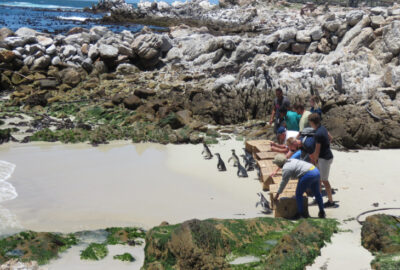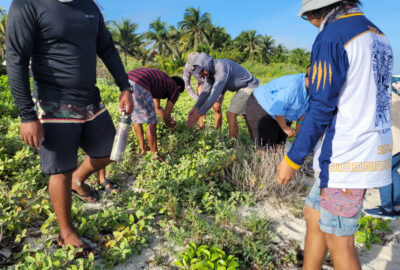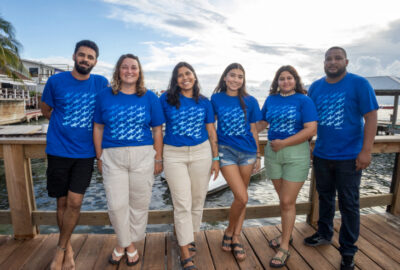Terrimar Helps Loggerhead Sea Turtle Population in Cape Verde
Learn how MCAF Project Leader Silvana Monteiro Roque works with Terrimar to protect the population of loggerhead sea turtles in Cape Verde.

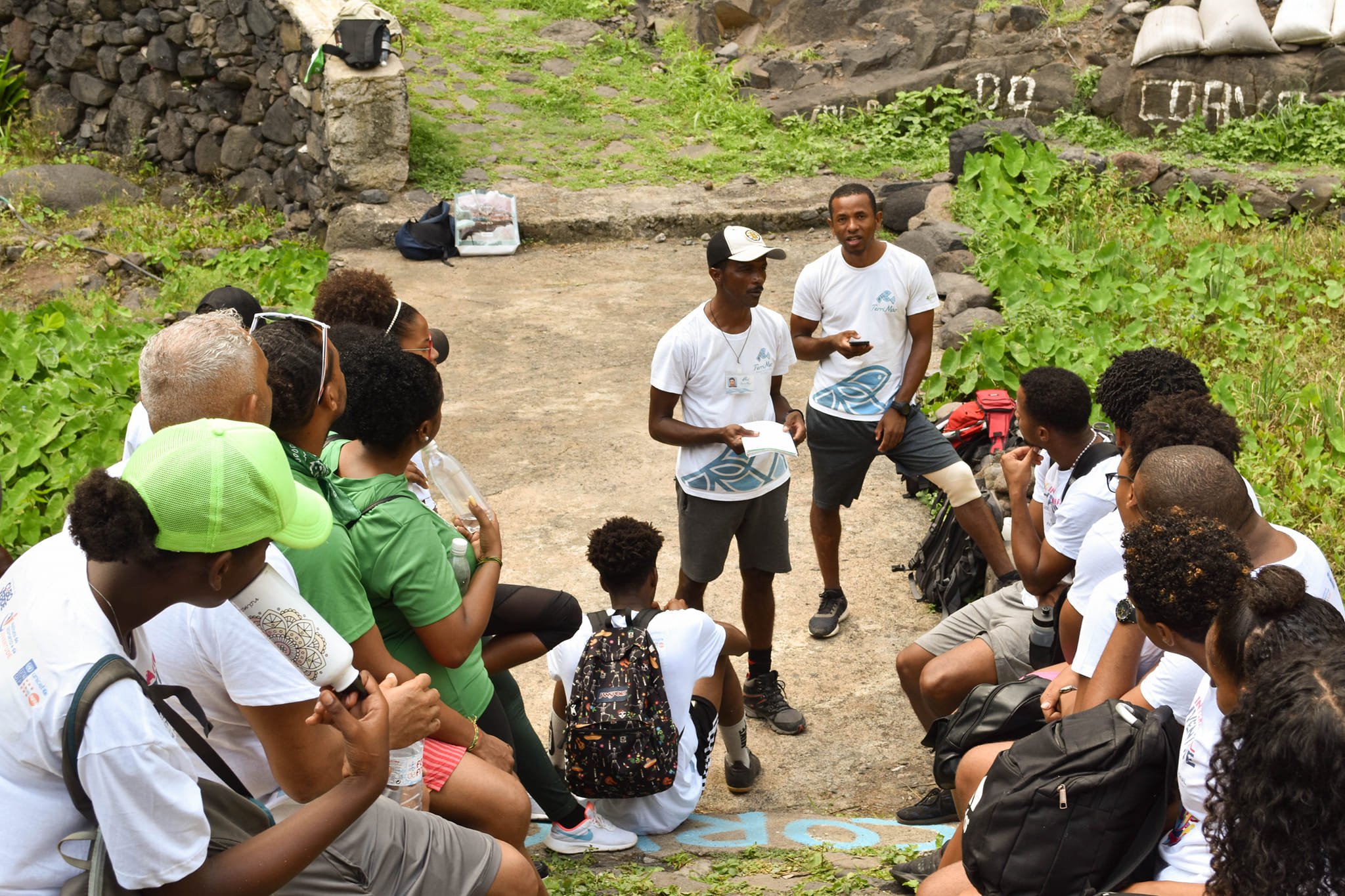
This post is one of a series on projects supported by the New England Aquarium’s Marine Conservation Action Fund (MCAF). Through MCAF, the Aquarium supports researchers, conservationists, and grassroots organizations around the world as they work to address the most challenging problems facing the ocean.
By Silvana Monteiro Roque
Terrimar is a non-governmental organization (NGO) that has been working in Cape Verde, an archipelago comprised of 10 islands off the western coast of Africa, since 2011. This island country has outstanding landscapes and important marine and terrestrial ecosystems and is among the 10 most important hotspots of marine biodiversity.
Based on Santo Antão island, Terrimar, funded by the New England Aquarium’s Marine Conservation Action Fund, uses community-based patrols of sea turtle nesting beaches to help protect loggerhead turtles from poaching and other threats.
Terrimar was the island’s first sea turtle protection initiative, and its efforts have successfully reduced local poaching of these animals. Before Terrimar’s creation, poaching was a significant problem on the island.
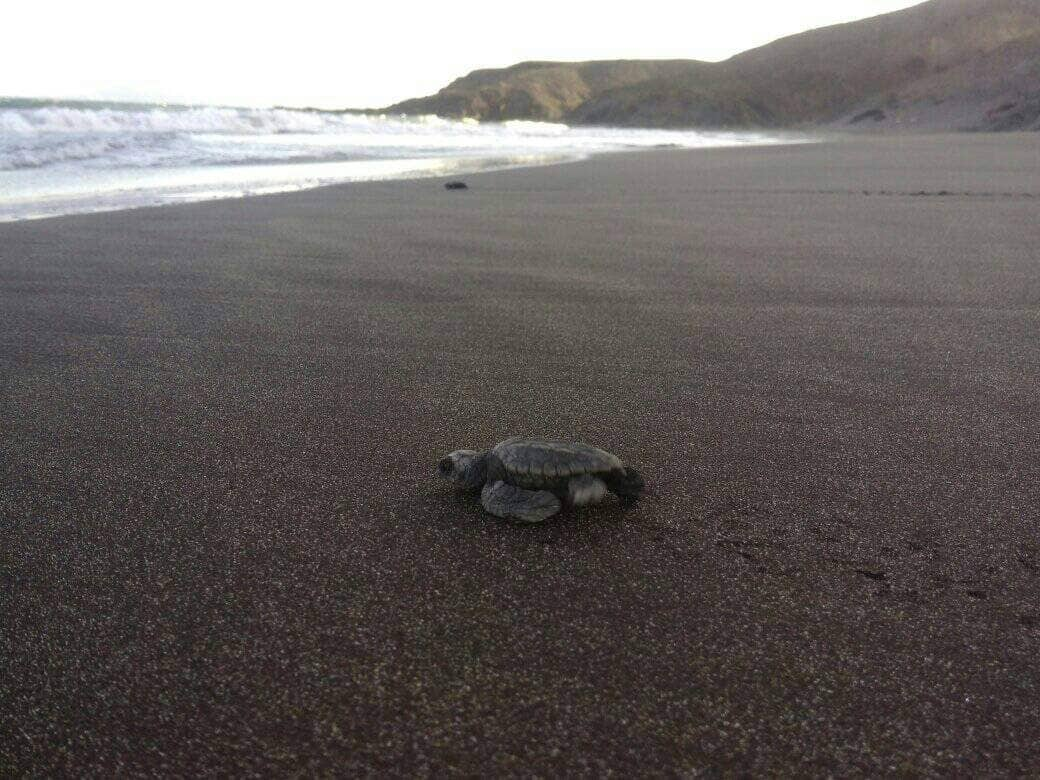
In the ocean near Cabo Verde, there are five species of sea turtles, but the loggerhead most commonly nests on our beaches. Cape Verde has the world’s third-largest population of nesting loggerhead turtles and the second-highest in the North Atlantic.
Traditionally, local communities eat sea turtles. Since 2005, catching sea turtles has been a punishable offense; in 2018, even the consumption of turtle meat became a crime. Today, the level of awareness is much higher than 20 years ago when turtle conservation efforts started in Cape Verde. But still, many people catch sea turtles because of economic motivation or, sometimes, tradition.
To deal with poaching on Santo Antão island, Terrimar bets on a strong community approach through the involvement of community members in all our activities and providing opportunities to residents to become part of our staff through personal capacity building.
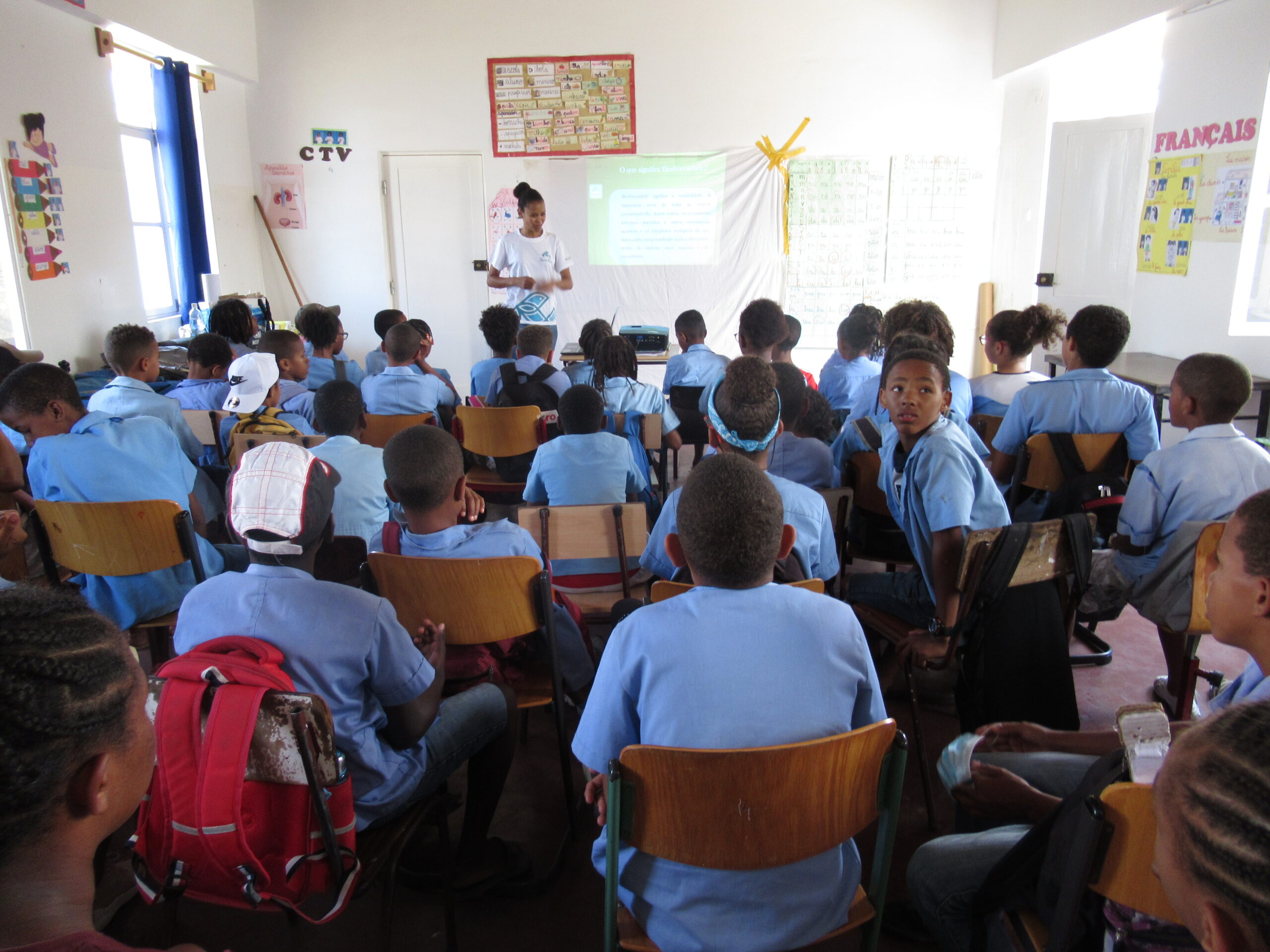
Working closely with local communities is crucial because only through their involvement in all the steps of the process can we achieve lasting results. During our annual sea turtle campaign, Terrimar carries out night patrols to avoid poaching and monitor the female sea turtle population on the island. We follow the completed protocol for nesting sea turtles: we tag turtles with PITs, take measurements of the turtles, collect skin samples for genetic studies done in England (through Queen Mary University of London), and monitor the nests until the hatchlings come to the sea.
Moreover, rehabilitate injured sea turtles found by fishermen and handed to us. During the four-month campaign, we worked on 23 km of beaches with a staff of more than 30 team members, the majority of whom are members of local and coastal communities of the island.
In the past two years, we have received MCAF grants, a critical funding source for our work. In addition to the beaches on which we have night patrols and morning censuses, we work in 10 other areas only accessible by boat, which allows for more frequent prospecting and increases the data from the most significant nesting beaches on the island.
_________________________________________________________________________
Silvana Monteiro Roque, is a biologist for NGO Terrimar and a project leader for the New England Aquarium’s Marine Conservation Action Fund (MCAF). Terrimar is based on Santo Antão island in Cape Verde.

